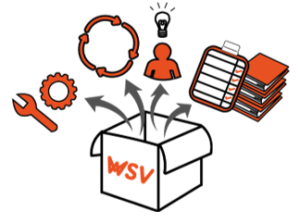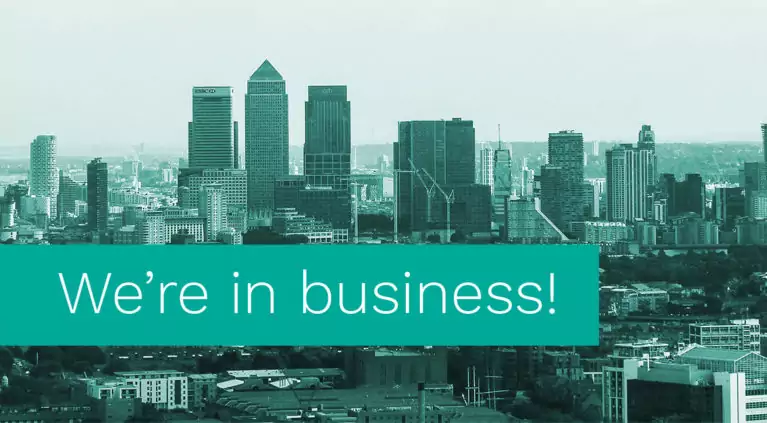Five reasons not-for-profits can and should have trading arms
The first traditional charity shop was opened in 1899 by the Wolverhampton Society for the Blind, with charity shops becoming widespread during World War II with notable openings by both the Red Cross and Oxfam.
More than a century later in 2018, 9% of the charity sector’s income is attributed to trading activities that reach beyond high-street charity shops.
Not-for-profits are looking to diversify their income streams alongside traditional fundraising, including Doteveryone.
No, we haven’t opened a community cafe in the Somerset House courtyard (although considering our collective baking skills, this is a great shame) but over the past year, Doteveryone has been generating profits through training and consultancy services which draw on our collective expertise in the field of responsible technology.
In fact, members of our team have been at Airbus Madrid’s Bizlab Accelerator just this week, working with startups to build responsible product principles in a series of workshops.
And as we move into 2020 we are refining our products and increasing our commercial offering through our standalone platform TechTransformed.
So here’s our thinking on why not-for-profits can and should have a trading arm.
1. It enables innovation at speed and scale
Grants tie charities to budgets, timelines, and planning. The length of time between application and funding can last up to a year in some cases, and this puts projects on hold with a lack of stability. Unrestricted income, on the other hand, offers charities the freedom to expand projects and move at the same pace as private competitors.

WSV is a social enterprise on a mission to help development organisations build sustainable and independent communities. And they generate revenue through their ‘Business in a Box’: a set of tools, processes, and materials that allow those living on under $5 per day to quickly replicate micro-businesses in any relevant community. These micro-businesses then pay a franchise fee back to WSV as they scale within their own communities. WSV’s franchising activities have created over 200 entrepreneurs in four countries across Africa, all building revenue and all working to missions that support the UN’s Sustainable Development Goals.
“A for-profit model is a sustainable way you can make change. It helps drive innovation with focus on the consumer” – Sarah Hunter, Public Policy Director at X, The Moonshot Factory
Doteveryone works with businesses and organisations who want to implement responsibility at scale, and for our work to translate to success and deliver the impact we need to innovate at scale too. Commercial Director Noor Mo’alla discusses more in her post: Embedding responsible technology practices in businesses.
2. They’re more likely to understand the needs of their beneficiaries better than the private market
Doteveryone stepped into the training and consultancy space not only because we identified a gap in the market, but because that gap could easily be filled by ethics-washing organisations or traditional consultancies. Responsible innovation needs a fresh, diverse perspective in order to break the mould which has formed from decades of monotonous innovation and undiverse leadership.

A charity’s first-hand experience, empathy and knowledge about their target audience – the people and communities they aim to benefit – can make them expert providers in a saturated market of private competitors.
Age UK, for example, sells insurance for elderly travellers because they understand their needs better than typical insurance firms.
Doteveryone works with businesses to embed responsible innovation practices because our research and policy work means we understand the unintended consequences of technology better than others in the space.
3. They can remain independent
Reproductive health charity Marie Stopes International has built a global network of more than 600 centres providing affordable contraception and abortion services to women. They charge fees that generate revenue.
As a grant-holder, a charity is often tied to using the income to achieve specific outcomes determined by the funder, however, the income Marie Stopes generates through their centres can be redirected to support services in more impoverished areas which may not be so eager to fund these services due to political or religious reasons.

For Doteveryone, generating unrestricted income means our research can remain respected and independent, without the influence of third party funders. As technology monopolies and government bodies search for answers at this critical time, our independence is vital in order to continue to put the public voice at the heart of the responsible technology debate.
4. Trading generates impact as well as revenue
Marie Stopes also uses social marketing to provide higher-quality contraception to individuals who can afford it. In Mongolia they provide 70% of the country’s privately sold contraceptives, filling a vital gap in the market where other options may not be so reliable. So as well as generating revenue, their presence in the private market is stimulating and encouraging the conversation around reproductive health.
“When it comes to revenue diversification, start with purpose. Any new initiative should help the organisation to deliver better on their mission.” – Alex Mecklenburg, Responsible Leadership Associate Doteveryone
Trading should be more than a means to stay financially afloat. Our work with clients is also helping us get closer to achieving our mission to help all sectors of society – businesses, civil society organisations, and governments – to understand and practice responsible technology, and therefore closer to our vision of the world where responsible technology is the new normal.
Our Responsible Digital Leadership training with the Greater London Authority, for example, is directly informing the decisions which impact the city’s 8.9 million residents.
And the Consequence Scanning workshop we delivered to 30 members of the Scottish Government will influence decisions they make on behalf of the 5.4 million-strong population.
Every time Doteveryone helps organisations consider the potential consequences of their product or service on people and society, it provides an opportunity to mitigate or address potential harms or disasters before they happen.
5. It gives businesses and consumers the opportunity to vote with their wallets
Beyond diversifying our own income revenues, there’s also a need to diversify the ways in which members of society are able to contribute to the UK’s 167,000 charities tackling issues at home and abroad. Beyond £2 per month campaigns and sponsored fun runs, trading arms allow consumers to contribute in more mundane and casual ways which translate into unrestricted income for the organisation in question.
A coffee bought in Gosforth’s Cafe Beam is a vote for the jobs held by its disabled staff. Booking Inclusive Leadership training for your staff with Diversity Role Models is a vote for better sex education. Insuring your car or home through the Salvation Army’s Insurance Corporation is a vote for the vital work they do with the UK’s unemployed and homeless.
As our world is damaged by climate change and automation impacts the modern workforce, the UN’s Sustainable Development Goals provide a shared blueprint for peace and prosperity for people and the planet, now and into the future.
And it’s the relevant not-for-profits that understand the barriers to achieving these goals better than anyone else. Through revenue-generating activities and reinvesting profits back into helping to achieve their core mission, they can catalyse broader and faster change for a fairer future.
Working with Doteveryone is a vote for responsible innovation and a world where technology is used to make life better for more people, more of the time.
Get in touch via [email protected] to find out more.

